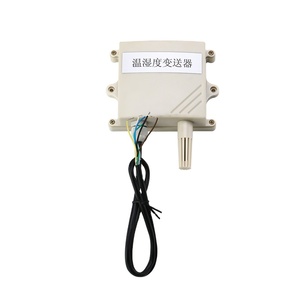Introduction to Temperature Recorders
A temperature recorder is a crucial instrument used across various industries to maintain optimal conditions for products and processes. These devices continuously monitor temperature fluctuations and provide accurate data, ensuring that specific temperature parameters are met. From pharmaceuticals to food storage, the significance of temperature recorders cannot be understated as they play a pivotal role in ensuring safety, quality, and compliance with regulations.
Types of Temperature Recorders
Temperature recorders come in various types, catering to different needs and applications. Here are some of the most common types:
- Digital Temperature Recorders: These devices offer accurate readings and often come with data logging capabilities. They're user-friendly and provide real-time monitoring.
- Analog Temperature Recorders: Utilizing a mechanical dial, these recorders are economical and easy to read but may lack the precision of their digital counterparts.
- Wireless Temperature Recorders: These advanced recorders utilize wireless technology to transmit data to a central system, enabling remote monitoring.
- Infrared Temperature Recorders: Ideal for non-contact temperature measurements, these devices are perfect for applications where safety or convenience is a concern.
Applications of Temperature Recorders
Temperature recorders find extensive use in numerous applications, enhancing operations across multiple sectors:
- Pharmaceuticals: Ensuring that drugs are stored within safe temperature limits to maintain their efficacy.
- Food Industry: Monitoring temperature in refrigeration and freezing settings to prevent foodborne illnesses and spoilage.
- Manufacturing: Keeping track of temperature in industrial processes to ensure product quality and safety.
- Agriculture: Monitoring environmental conditions where temperature control is vital for crop growth and livestock health.
Features and Advantages of Temperature Recorders
Investing in a temperature recorder brings numerous benefits that enhance efficiency and reliability:
- Accuracy: Temperature recorders provide precise readings that help maintain regulatory compliance and prevent potential disasters.
- Data Logging: Many models come equipped with data logging capabilities, allowing users to store historical data for analysis and reporting.
- User-Friendly Interfaces: Most temperature recorders are designed with intuitive interfaces, enabling easier temperature settings and data retrieval.
- Remote Monitoring: Advanced models with wireless technology enable users to monitor conditions from a distance, reducing the need for constant physical checks.






































































































































































































